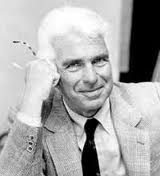Guilt is good. It is healthy. It is not all negative. And it is definitely not pointless. I discovered this as late as when I was in the middle of writing my first book, Corporate Nirvana. I wrote effortlessly about the secret to turning guilt into our biggest positive force. And I was a bit surprised where all the information poured onto the pages from.
Over the years of my voracious, hungry reading of books and resultant thinking, I have come to understand some tricks of my mind. But then, books don’t teach us the secrets of our mind – thinking does.
I don’t mind saying that guilt is the starting point of all that is good. It is an impartial critic whom we detest for telling the truth, but depend on for showing the way.
Till recent years ago, I spent hours and nights brooding on my decisions or lack thereof, beating myself up for hasty words and imperfect actions. Then something began to change. I began grudging the time spent in regurgitating the past. I started questioning the wisdom of finding my faults and absolving others of theirs. I am glad I felt guilty...about my guilt..!!
And this is my enlightening discovery. Guilt is the only way to begin feeling happy again. Without it, we would never discover the follies of our devilish mind. Have you discovered that unbridled confidence breeds corruption. Or that uninterrupted happiness hampers improvement. Though we are wired to be happy – regrets are meant to feel unhappy and uncomfortable. These interruptions are good. They jump start our life. We value happiness when we are unhappy, just like we crave peace when we are perturbed. Or how else would we know what we want? To me this makes complete sense.
But there’s a trick here – and a smart one at that. Guilt is like quicksand. Try too hard, and we go under faster. Let go, and we have a chance.
Here’s how guilt turns into the biggest positive force of our life. Next time you have deep, bitter regrets.....allow yourself some forgiveness and a generous distance from the past. If guilt is the protagonist of our past, hope is the determined leader of the future. Once we take this step, we begin to understand how we can set things right – or that we can’t set them right anymore – so we must let go. Like quicksand, life responds better when we aren’t thrashing about in despair.
My personal experiences have taught me the utility of feeling guilty, and that without it, we might never feel the powerful surge of motivation to set things right, or make the best of what we have today. But for guilt, we might never realize that time spent in regrets doesn’t make things right - but time invested in asking meaningful questions of our guilt, makes all the difference.
Guilt is good. So next time you find yourself there, feel at peace. Guilt has a purpose - of propelling us to progress, searching for answers, fostering forgiveness, and doggedly pursuing our best self.
Just in case you get curious about Corporate Nirvana http://www.flipkart.com/books/9380227856









